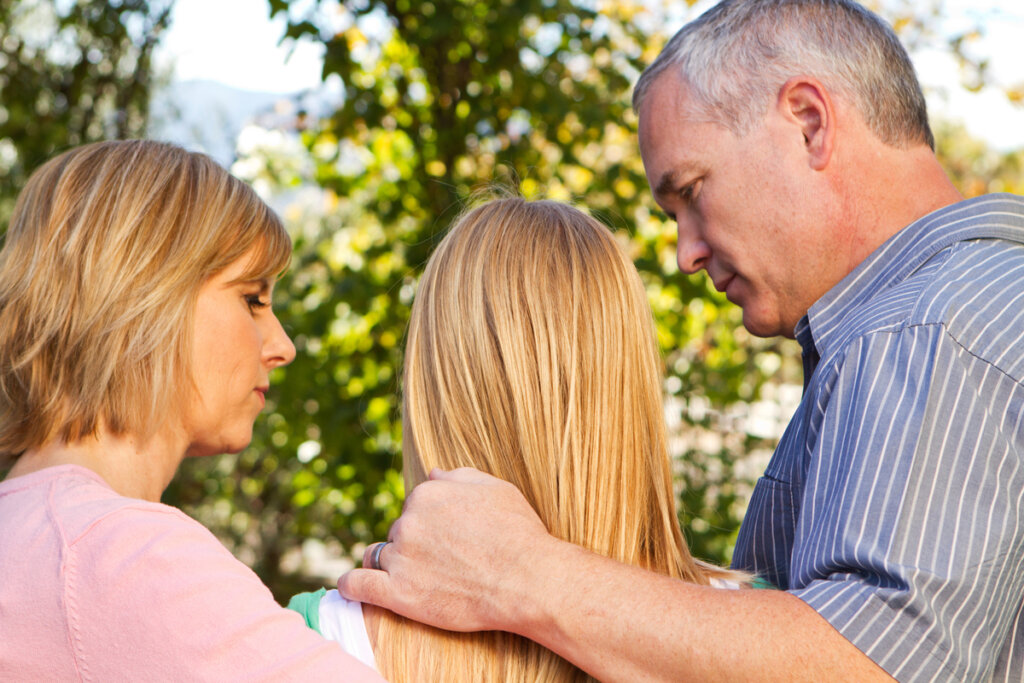Parents Who Emotionally Control Their Children Beyond Childhood

Children need freedom in order to achieve autonomy. Only in this way can they structure their identity, their beliefs, and their opinions. Furthermore, they’re able to travel along the path towards adult life. However, when parents emotionally control their children, they hinder their development.
There are parents who, from their children’s childhood pan out their futures based on their own needs. In fact, they look to the future and assign their children responsibilities that simply don’t belong to them. They see in their child a refuge from loneliness or a lifeline from the losses of old age. They also might expect one of their children to take care of other siblings or to continue on some kind of family tradition.
Some parents believe that their emotional or financial stability depends on whether their children are living with them. However, these parents are victims of their own fears and insecurities. Furthermore, by not overcoming them, they pass these feelings on to their children. Hence, the children stay with them. Most are not even aware of this. Nevertheless, it causes them a lot of damage.
” A child is a question we ask fate.”
-José María Pemán-

The mandate
These kinds of parents make themselves sound helpless in order to manipulate their children. Their words actually become transformed over time into a mandate and a sentence that the child is then obliged to fulfill.
Then, the child will give up on their own plans. In many cases, they even sacrifice the possibility of starting their own family, or of training in a certain place, or accepting a professional opportunity that’s really attractive to them. In fact, they have to include their parents in any plans they make.
These children have been issued a mandate to take responsibility for the well-being and happiness of their parents at any cost. Children who take on this role bear a huge emotional burden. Furthermore, they feel guilty just for thinking about leading an independent life.
As a matter of fact, some of these children continue to live in their parents’ home, “fulfilling” their assigned destiny, even long after their parents have died. In other cases, the children might have their own families. However, the conflicts with their parents that arise from this decision, often cause them to regress, divorce, and return to live in the parental home.
Relevant consequences
Unresolved parenting problems can spoil an entire generation of children and even extend beyond. Indeed, it’s quite probable that these kinds of parents were brought up in the same way that they’re “training” their children today.
This form of emotional manipulation exerted by parents results in frustrated children with no real expectations in life. These children are used, in effect, like emotional crutches. They’re forced to forget their own existence.
In addition, they often repress their own needs and desires. This is irrational and they often become neurotic. Furthermore, in many cases, when their parents die, these children will feel completely lost because they don’t know what to do with their freedom and their lives.

A continuous dependency
In general, these types of situations can produce strong feelings of love-hate towards parents. In fact, in some cases, they become a source of permanent conflict between the two parties. When this kind of relationship persists, it becomes extremely unhealthy.
This mutual bondage restricts the freedom of those involved and prevents the fulfillment of any desires and goals. Likewise, it feeds insecurity and low self-esteem in the child.
Conceiving life as a continuous series of sacrifices based on a misunderstood concept of love has consequences. It can lead to serious problems in psychic functioning, such as phobias or obsessive-compulsive disorders.
Likewise, the guilt the child experiences when they breach the mandate can degenerate into them suffering from somatic diseases or other types of disorders. These have important repercussions on them. In effect, they’re simply overloaded.
What to expect
Of course, it’s important that children have a positive attitude towards their parents. However, this doesn’t mean that they have the right to determine their future.
What’s more, we now know that when children are raised to be responsible and independent, they’re far more likely to help and contribute to their parents’ well-being in later life. Indeed, in these cases, when problems occur, the children will collaborate in the best way they can. In addition, it’s less likely that the parent-child relationship will break down.
For most parents, there’s no greater satisfaction than seeing their children become independent. These people have watched and encouraged their children to grow up and take charge of their own lives. For this reason, they take the greatest of delight in the fact that their children are now happy with their own lives and the choices they’ve made.
All cited sources were thoroughly reviewed by our team to ensure their quality, reliability, currency, and validity. The bibliography of this article was considered reliable and of academic or scientific accuracy.
Chávez, M. A. (2017). Tu hijo, tu espejo (nueva edición): un libro para padres valientes. Grijalbo.
This text is provided for informational purposes only and does not replace consultation with a professional. If in doubt, consult your specialist.








